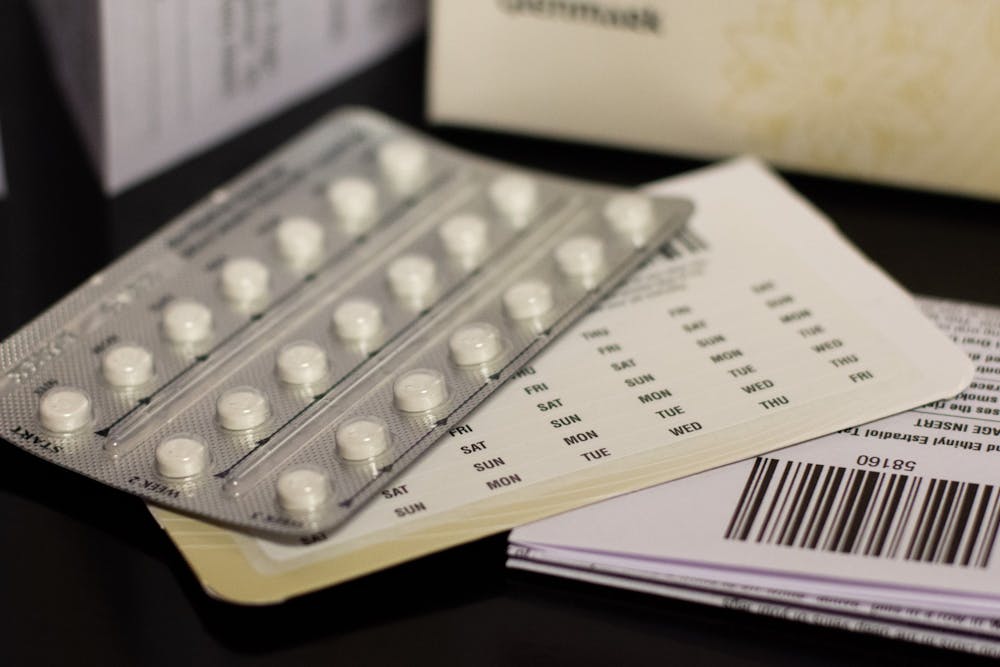Ulipristal, or Ella, is available by prescription for around $50 and is often covered by insurance with a minimal or $0 copay.
IUDs can be placed by appointment by a doctor or nurse, and are almost 100 percent effective at preventing pregnancy when placed within 5 days after unprotected sex. IUDs can also act as a form of long-term birth control. Insurance may cover all or some of the cost.
Is birth control safe and effective?
If you're sexually active and don't wish to become pregnant, you can use birth control. When used correctly, hormonal birth control like the pill is up to 99 percent effective.
For more on birth control and safer sex, see Campus Health or your medical provider.
Are at-home abortion pills safe and effective?
According to Planned Parenthood, medication abortion — also called the abortion pill — is a both safe and effective method of ending early pregnancy.
Medication abortion includes two different medicines — mifepristone and misoprostol. The mifepristone pill is taken first, and stops the pregnancy from growing by blocking progesterone.
The Misoprostol pill can be taken right after mifepristone and up to 48 hours after. It causes cramping and bleeding which empties the uterus.
The effectiveness of medication abortion depends on how far along the pregnancy is. Abortion pills are 94 to 98 percent effective for people eight weeks or fewer pregnant, 94 to 96 percent effective for people eight to nine weeks pregnant, 91 to 93 percent effective for people nine to 10 weeks pregnant and about 87 percent effective for people 10 to 11 weeks pregnant.
You may be able to receive a medication abortion up to 77 days or 11 weeks after the first day of your last period.
According to the National Women's Health Network, at-home medication abortion is safer than Tylenol, available without a clinic visit and can be available by mail within a few days. Several states have clinicians who prescribe and mail FDA-approved abortion pills after an online or phone consultation.
To get the day's news and headlines in your inbox each morning, sign up for our email newsletters.
Plan C, a project sponsored by the NWHN, provides information about how to receive abortion pills online based on state. Hey Jane is a virtual clinic that provides FDA-approved abortion pills mailed to one's home.
If I have questions about my reproductive health, who do I ask?
Planned Parenthood's Sexual Health Counseling & Referral Hotline offers anonymous and free information and support about a variety of reproductive health topics including birth control, emergency contraception, pregnancy testing and abortion services. The hotline can be reached by calling 800-258-4448.
Repro Legal Helpline is a free legal service that helps people understand what access they have to abortion if they live in a state with restricted or banned abortion. It also provides information on how to order abortion pills online and can be accessed by calling 844-868-2812.
For those wishing to speak with someone in-person, the Orange County Health Department provides counseling on birth control and STI prevention at its clinics in Chapel Hill and Hillsborough. Gynecology at UNC Campus Health also provides counseling services.
What is the difference between a clinic and a pregnancy center?
At the most basic level, clinics provide abortion services, while pregnancy centers do not. Abortion clinics often provide other services such as birth control, pregnancy testing and STI testing.
According to Planned Parenthood, crisis pregnancy centers often appear to be similar to abortion clinics. They offer free pregnancy tests, abortion counseling, ultrasounds, and post-abortion care but will not help patients get an abortion and do not provide birth control. They will also provide free supplies such as diapers, baby formula and clothing.
According to the American Medical Association Journal of Ethics, most crisis pregnancy centers do not have medical licenses or licensed medical professionals on the staff.
What is a waiting period?
Twenty-seven U.S. states have statutes in place that require people seeking abortions to wait a specific period of time after mandated counseling before they can receive an abortion.
North Carolina has a mandated 72-hour waiting period, which requires people seeking abortions to receive counseling in-person or over the phone with a "qualified health professional or technician," three days before an abortion — except in the situation of a medical emergency.
@alliemkelly | @_ElizabethEgan
managingeditor@dailytarheel | outreach@dailytarheel.com



